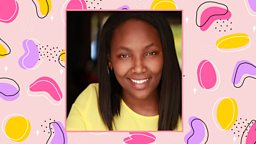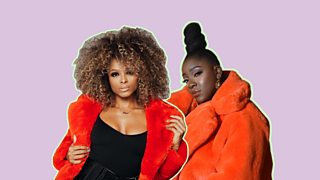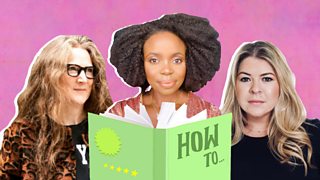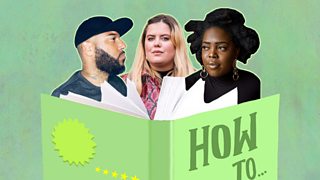'My work has become much more honest': Black women poets on how 2020 has changed them
October has been Black History Month and this year feels particularly poignant following the events of 2020 and the resurgence of the Black Lives Matter movement. Woman’s Hour spoke to two Black performance artists about the impact this year has had on them and their work.
Performance poet Sophia Thakur has been featured on MTV, BET and TED and has been holding free workshops over Zoom during lockdown to help people process events. Vilma Jackson’s work explores the challenges she faces as a Deaf, black woman in a hearing world. She uses British Sign Language and works alongside her interpreter Ali Gordon. They spoke to Woman's Hour's Olivia Cope...

‘Poetry forces us to pause and actually think for ourselves’
“Life has shrunk into a smartphone during lockdown,” says Sophia Thakur, whose work includes . “We consume so much 24/7, from the moment we wake up to the moment we go to sleep, and sometimes we attach ourselves to nice sounding ideologies that seem like the right thing to think or believe.
“I love poetry because it forces both the reader and the creator to pause. To find out why they’ve arrived at this opinion or this feeling. Like a muscle, the more we engage in that process of rationalising and realising, the less likely we are to be swayed.
“When I’m leading workshops for young girls in schools, I try to empower this idea that their opinions, their thoughts and their beliefs are so important. Our voice and the things that we speak are very defining in who we become.”
‘Having a voice is very important to me’
“A lot of people see deafness as being some sort of problem. I don’t,” says Vilma Jackson, whose piece marks her debut as a writer and producer.
“I’m proud of that deafness. I’m proud of my blackness, I own it.
“I would prefer not to be patronised because I’m Deaf, with people assuming all the things I can’t do rather than focusing on the things I can. In lots of ways, I create the work because I want to be able to show people what I can do. I can write. I can direct. I can perform. The only thing I can’t do is I can’t hear.”

‘I want to keep the movement going’
“The Black Lives Matter movement is important to me because, as a sign language user, I wanted to be able to bring that information to black Deaf people who may not have access to it,” says Vilma.
“There’s a large part of the Deaf and disabled community that feels as if it’s been forgotten, as if nobody wants to talk about the issues that are affecting us. Part of my work was about saying, “Look, we are also here, we are also black, we are also women.’ The work can be very tiring to keep reminding people.
“I was in a position to spread and share information and so I wanted to advocate for people, to keep the [Black Lives Matter] movement going. Many people within the Deaf community are experiencing oppression as well.”
‘My work became so much more honest’
“Before 2020 I was mostly on stage, I was a performance poet, and then suddenly during lockdown all I could do was sit down and write,” says Sophia.
“So I became a lot more delicate, a lot more quiet, a lot more demure in how I wrote. And then this whole George Floyd incident occurred and I was angry. I had so much pent up energy from just being sat down for so many months and not touring that my work became so much more raw, so much more honest.
“Suddenly being scared to offend certain groups of people didn't really mean as much. When families are burying broken black bodies and their whole life suddenly becomes a protest, I kind of lost my desire to facilitate white fragility or fragile white privilege."

‘Black came across almost like a swear word’
“There were a lot of shifts in how I would communicate, especially when I was working with quite corporate clients. I used to say things like ‘BAME’ or ‘people of colour’, because black just came across as almost like a swear word," says Sophia.
“I realised that I’m not necessarily angry with my white clients. I’m not angry with my white followers. I’m angry at a system, and those who choose to be intentionally complicit in the oppression of black people. That’s where my anger is.
“One thing I’ll always thank 2020 for is that it forced me to decide what position and role I wanted to play inside this movement. That role is empowering others to think. Empowering others to think free from their bias, free from their denial and empower people to be open and comfortable in accepting some really tough and ugly truths.”
Listen to Vilma Jackson and Sophia Thakur talk to Woman’s Hour on 91�ȱ� Sounds, where you can also listen back to any of the episodes you may have missed. Follow us and join the conversation on or @bbcwomanshour.




